|
Okay, let’s get this straight. Nicki Minaj is not just famous because she is a female rapper, or because she was the first female rapper to really take the industry by storm. She is also not just famous because of her often outrageous fashion sense, and the obvious sex appeal this promotes. It is a discredit to suggest that these alone have propelled her to stardom - they would have made her a flash in the pan. What has ensured her longevity is her undoubted skill as an artist. She can go bar to bar with just about anyone else in the game, she has hooks that wriggle themselves into your head and don’t remove themselves in a hurry, and she has undoubted charisma. Also, in my opinion, her verse on Kanye’s ‘Monster’ is the best rap verse of the modern era, if not of all time. Sue me. But she also has a much greater social role to play, and one which, judging from her recent Beats 1 interview with Zane Lowe, she is very aware of. “There are songs on the album that I feel woman really need right now,” with a message of female empowerment even more relevant amidst the rise of conservatism that has paralleled the ascent of President Trump. Perhaps the pivotal track is the one that has stirred up the most controversy, ‘Barbie Dreams’, on which Nicki hilariously lists all the rappers that want to sleep with her and why she always refuses their advances. The song ironically inverts a sample from Notorious B.I.G.’s ‘Just Playing (Dreams)’, which consists of him going through all the female R&B singers he’s attracted to. Nicki toys with Drake before dismissing him for being too emotional, claims the monocular Fetty Was has his eye (get it?) on her, and calls out her ex Meek Mill for still pervading her DMs. She is tempted by Young Thug, who famously broke gender stereotypes by wearing women’s clothes on the cover of his 2017 project JEFFERY, but then jokingly raps that she was turned off when she found him stealing her dresses. This song epitomises what we need more of in 2018 - a woman’s voice in Hip Hop, and good, light-hearted fun. Many were shocked by ‘Barbie Dreams’, thinking it to be a diss track directed towards the various rappers referenced. But this is symptomatic of the problem - artists with their constant introspection and profound musings can end up taking themselves too seriously (rather like I do as a philosophy student, mind you), and here Nicki provides some refreshing relief from this. For too long in the past women who like Hip Hop have had to endure the constant belittling, objectifying and macho domineering that underlies most of the songs atop the genre, which sound as though they are exclusively directed towards a male audience, even if this is not the intention. Nicki Minaj is a role model, someone who embodies the confidence, fearlessness and self-belief that regular Hip Hop can often detract from. On her new album, Queen, she fires innumerable warning shots at her ex, but it comes across as strong rather than bitter, resurgent rather than regretful. The focus is very much on her, and her life, not on those who haven’t been able to keep up with her. And she has fun doing it, with the project peppered with entertaining, tongue-in-cheek punchlines, whilst never losing sight of the album’s defiant cri-de-coeur - "Who the f*** you thought you was, tryna stunt on Nick?” In the strategic chess-board of Hip Hop, the likes of Drake, Kendrick Lamar and Kanye West still frantically vie for the throne, but too long have the eyes been trained on the King. For everyone knows the Queen is the most important player. Yours sincerely, but not too seriously, Max.i’m
0 Comments
Travis Scott’s third studio album, Astroworld, had all the odds stacked against it. Travis’ fans had been anticipating this release for two years, with the constant speculation as to when it would drop only ever resulting in disappointment - until now.
However, while there was obviously immense excitement at there finally being a release date, the prolonged hype meant it was always going to be virtually impossible to meet fans’ expectations. On the other side of the fence were Scott’s critics, who have maintained since day one that he offers nothing more than an unimaginative combination of his idols - Kid Cudi and Kanye West. His relationship with Kylie Jenner has also opened him up to sceptics who will view any success the album enjoys as purely a result of this limelight. But that’s enough negative energy for one post. I admit I’m a massive Travis Scott fan, but I also admit I was nervous as to whether Astroworld would match its promise. ‘Watch’, the lead single, was okay, but it wasn’t of the calibre of Scott’s main Rodeo singles, ‘3500’ and ‘Antidote’, nor was it close to Birds in the Trap Sing Mcknight’s ‘Pick Up the Phone’. Furthermore, I have written previously of my reservations about long tracklists, and Astroworld reads 17 songs long. My fears, however, were proven to be groundless. The album rocks, to a level that is epitomised by its dramatic title. ‘Stargazing’, the opener, ensures Scott hits the ground running, with his pitched vocals reminding the listener of his untouchable mercuriality. This was the summer that left room for someone to step forward and claim the Hip Hop crown, with all the heavyweights producing fine projects, but nothing spectacular. On Astroworld, Scott takes aim at the pantheon, and he warns anyone who tries to halt his mission to either step aside or be blasted out of the way by his thunderous, Auto-Tuned roar. He has always been a master of aesthetics, composing Rodeo with an unwavering loyalty to the theme, making it sound like a sleepy desert quest, with the mood meandering from intensely hot to uncomfortably cold and back again. Birds in the Trap played like a beast rattling furiously against a metal cage, with anarchy and dejection flaring up in equal measure. Astroworld is no less of an enthralling journey, with the cheery, fairground-esque instrumentals providing an eerie backdrop to Scott’s dark storytelling. The album is named after the theme park that was torn down in the artist’s home of Houston, and he’d outlined previously his goal to make the project sound exactly how it felt to have that emblem of youth and fun torn away from the heart of the city. Boy does he stay true to his word. There is the spinning, nauseating tea-cups of ‘NC-17’; the snaking, rip-roaring coaster of ‘Astrothunder’; the stomach-somersaulting drop of ‘Who? What!’; and the psychedelic yet murky fun-house that is ‘Houstonfornication’. The lyrics are undoubtedly his most personal yet, and show that Scott has worked hard to bring the content of his songs up to equal their unquestionable sonic quality. His newborn son and Kylie feature prominently throughout, with Travis offering us some tenderness to balance out the power posing on tracks like ‘Stargazing’ (“I was always high up on the lean/Then this girl came here to save my life”), ‘Stop Trying to Be God’ (“You can’t win a trophy or a plaque off her/But never turn your back on her”) and the concluding ‘Coffee Bean’ (“I know they told you I’d be bad for you/Don’t worry I’ll be back for you”). He interpolates a depth that we haven’t seen previously, addressing issues of sexism on ‘Skeleton’ (“If you take your girl out, do you expect sex?”) and interpolates a metaphor for the fickleness of fame on the aforementioned ‘Stop Trying to Be God’ (“The signal’s far from what you can be/‘Cause air traffic controls the landing”). But the rapper doesn’t have such a strong following amongst the young generation because of his lyrics - it’s because of his anthems. Travis Scott cannot feature on other artists’ songs without his trademark ‘It’s lit!’ and ‘Straight up!’ ad-libs bringing aftershocks to each seismic hook and verse. On his own turf, on his planet, Astroworld, he expects his guests to bring just as much verve, and they generally do not disappoint. Drake churns out yet another classic refrain on ‘Sicko Mode’, while the slower ‘Stop Trying to Be God’ boasts Stevie Wonder playing the harmonica. The Migos of course pop up, while Frank Ocean and Swae Lee offer soothing melodies to soften the blow of Travis’ fiery bars. The Weeknd, however, undoubtedly steals the show, with his angelic but eerie vocals contributing to the hazy nightmares of ‘Skeletons’ and ‘Wake Up’. Despite the success of Migos member Quavo’s joint project with Scott, released late last year, you can’t help but think that The Weeknd would have been a far better suited collaborator. The feeling of having something to prove seems to be the permanent mentality of an artist, but as cliche as it may sound, Travis Scott undoubtedly proves his point on Astroworld. Yes, some critics will lazily claim that he was born great, due to having met Kanye West so early on in his career. And yes, some will look with envious eyes and argue that he has had greatness thrust upon him, due to him having had a child with such a high-profile celebrity. But don’t get it mixed up. On Astroworld, Travis Scott achieves greatness. So my advice for listening to his latest project? As he wrote in the album’s accompanying Apple Music note - ‘Just buckle up’, and enjoy the ride. Yours sincerely, but not too seriously, Max.i’m Migos, Rae Sremmurd, Lil Yachty, Future and Wiz Khalifa have all dropped sequels to the projects that got their careers off the ground. But do fans get more of what they loved about the first instalments, or are disappointing comparisons inevitable? 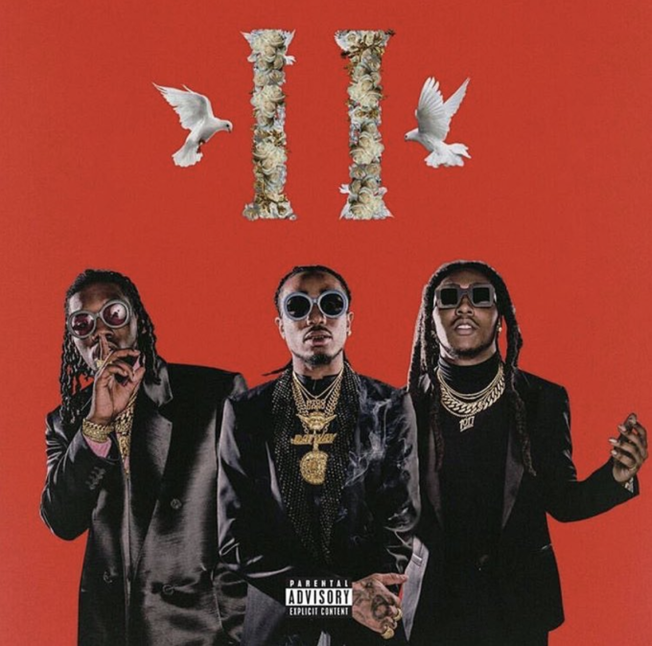 Every successful rapper has the album. And by this I’m not referring to the rather self-explanatory point that in order to be a musician you have to have made music, and this usually manifests itself at some point in that artist’s career in a body of work, usually termed an album. Although, some would actually argue that there are well-known rappers who thrive on mixtapes, which aren’t specifically the same as albums… ANYWAY, ignoring the nit-picky imperfections of my opening statement, it is undoubtedly the case that usually, in any genre, to be a hit recording artist, you need one special album to really propel you into the mainstream consciousness. You need a body of work that epitomises your sound, your style, and that is and probably never won’t be the best album of your career. You need a centrepiece, a ‘Tapestry’, a collection of songs where you can’t talk about the artist without saying ‘Oh yeah, they’re the one who made that album’. You need the album. Many would argue that once you achieve this point in your career, it is a curse to ever release a sequel to this heralded piece of work. It will always fall short of fans’ expectations, because with every year that passes the original album becomes even greater and more of a classic in their minds. It would be the ‘Jaws 2’ of the music world. By contrast, many record label strategists and industry gurus (first of all, how are these even jobs - and secondly, where do I sign up?) sit on the other side of the fence, arguing that you can capitalise on the success of the first album by bringing out a follow-up. Fans of the first will almost definitely devour the second, and even if it is a load of utter codswallop, the money-makers don’t care, because the streams will already be there. Equally, the artistic purists will claim that album sequels should more often than not exceed their predecessor, because if the creator is a true ‘artist’ they will have developed and honed their sound in the time between the releases. In reality, bringing out sequels in Hip Hop is undoubtedly risky business. But it can work, and when it does, it is usually spectacular in its success. If it flops, however, the pedestal the original album had been placed on is very often snatched from beneath the artist’s feet. So in 2018, where a surprisingly large number of artists released sequels - who dropped fire, and who flopped dire? (Ok, it wasn’t that funny, but it rhymed and I couldn’t resist, so lets just move on to our first sequential analysis)… Migos, Culture II For the Migos, it was Culture, the smash hit that spearheaded their charge into rap’s upper echelon and announced themselves as the leaders of this generation’s artistic movement. Is this a valid claim? No. But was Culture a decent album? Definitely. It was fun, it was hectic at points, but it was the Migos through and through. And of course, there was a period in 2017 where you couldn’t turn the radio on and not hear the group’s smash hit ‘Bad and Boujee’, which somehow went overwhelmingly viral. On the surface of Culture II, not much has changed in the year since the first Culture instalment. The excessive amount of ad-libs - a large amount of which are self-promoting name drops - and their supposedly pioneering triplet flow is as pervasive as ever. The guest list is a lot more impressive on Culture II, with contributions from Drake, Post Malone, Big Sean and Kanye West. But as a body of work, it fails to really impress. It has better tracks individually, with ‘Motorsport’, ‘Supastars’, ‘Notice Me’ and ‘Gang Gang’ being personal highlights, but it definitely suffers from being way too long with 24 tracks, as opposed to Culture’s comparably concise 13. There were moments on Culture II that eclipsed the material on the first album, but these came too few and far between to really be called an improvement on the original, and ultimately made many ask whether the Migos are a one-trick pony, and whether they have started to take themselves too seriously. Culture II is overly similar in subject matter to the first Culture, and made many realise that perhaps the original wasn’t the masterpiece it was crowned as. Without ‘Bad and Boujee’s meme-fuelled success, the album probably would have dipped quite heavily under the radar. If this was a film? Taken 2. Not terrible, but too predictable to really be good. We know the guy has to save the girl, just like we know Quavo’s always going to rap about raindrops and droptops. Rae Sremmurd, SR3MM The previous two Rae Sremmurd albums had been met with a fair amount of critical acclaim, but escaped the playlists of many mainstream listeners until the breakout stardom they earned as a result of their own equivalent to ‘Bad and Boujee’ - ‘Black Beatles’. It spawned the viral freeze game, which helped propel the song to number one. However, the rest of the tracks on Sremmlife 1 and 2 remained largely untouched, except by the duo’s existing fanbase. After the failure of Culture II largely because of its length, the announcement that SR3MM would consist of Rae Sremmurd’s two members’ solo albums, alongside the group project, worried many an onlooker. Yet when the 27-track, triple-album behemoth dropped, the three parts complemented each other sublimely. The tropical, melodic croons of Swae Lee, unquestionably the more famous Rae Sremmurd brother, spawned numerous songs that have been mainstays on my summer playlists, while Slim Jxmmi’s hard-hitting raps provided the antithesis. The collaborative first section was the strongest, but as a whole this was, in my view, the best offering yet from the Hip Hop group. If this was a film? Godfather 2. Classy, thrilling, and full of references to criminal activity. Lil Yachty, Lil Boat 2 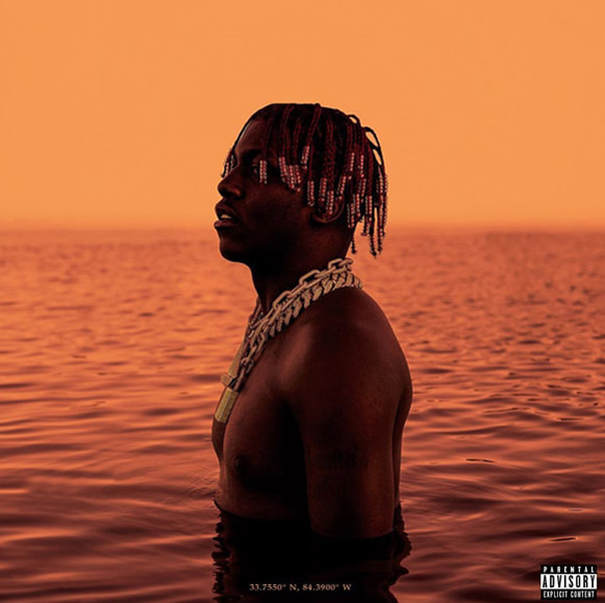 This sequel is odd in that it sounds nothing like a sequel. Lil Boat showcased Yachty’s sense of humour and his uniquely summery disposition, and was entertaining from start to finish. He weaved between singing and rapping expertly, even more impressive considering his lack of years. Lil Boat 2, on the other hand, contains no such variation, nor humour, which is strange considering these are the artist’s two most distinguishing traits. Its bleariness was excused because Lil Yachty was supposedly aiming to make an album completely unlike his previous release, Teenage Emotions, which received an intensely negative critical response. But personally, I loved Teenage Emotions, as it continued Yachty’s breezy, and admittedly cheesy at times, stroll through youth. Lil Boat 2 is lifeless, and is a perfect example of an artist having his identity swallowed up by the abyss of people-pleasing. If this was a film? Jaws 2. Which is ironic considering this is an album about a Boat. Wiz Khalifa, Rolling Papers 2 I think Wiz has the advantage here in that he left a much more significant amount of time in-between albums, as Rolling Papers was released all of 7 years ago. It was undoubtedly the album for Wiz, partially because after his ‘Black and Yellow’ success he spent a long time away from the charts. He might argue he was experimenting and ‘rediscovering’ his sound, what's more likely is that he simply didn’t produce any amazing material during this period. But then Fast and Furious 7 comes along in 2015 and Khalifa drops ‘See You Again’, which puts him back on the map and suddenly makes him the most streamed artist in the solar system and beyond. Rolling Papers 2 is interesting, and is a testament to how the rapper has managed to sustain his career over so many years, despite most of the artists that were breaking onto the scene at the same time as him being long gone (anyone remember Chipmunk? ). If anything, Khalifa’s patchwork of lackadaisical rapping and even more lackadaisical singing is the most relevant it’s ever been, with the emergence of melodic trap over the past couple of years. In my opinion, though, what sets Wiz Khalifa apart from his fellow sequelists is not the quality of his music, nor his subject matter, which is 90% green with a strong, unmistakable odour. It is the fact that he hasn’t really changed his vibe nor sound for anyone. Even when his flow seemed to be losing favour, he didn’t panic like Lil Yachty and perform a stylistic about-turn. Wiz has always been Wiz, and while there are obvious artistic benefits of being mercurial, fans also like dependable consistency. Rolling Papers 2 has some great tracks, as well as some very forgettable ones, but it never really gets boring, despite still being overly long. It simply serves as a new pool of tracks to dip in and out of, rather than to be enjoyed as a full project. It is what it is - or maybe, it is what it Wiz… If this was a film? Star Wars: The Last Jedi. A lot of people talk down on the franchise for hanging around, but nonetheless it still commands one of the most loyal fanbases out there - and justifiably so. Future, BEASTMODE II Lets get this straight. Future is not a creative genius, pushing the boundaries of art as we know it. But he doesn’t pretend to be, either. What he is, is a business mastermind, and has pinpointed his niche and flooded his market with mixtapes left, right and centre. He is about quantity, rather than quality. The Beastmode mixtape was highly revered among Hip Hop fans when it was released in 2015, but didn’t really offer us much more than the other four mixtapes he dropped in the same year. Producer Zaytoven did a commendable job with his twinkling, trap-balled beats, and he steps up to the mark yet again on BEASTMODE II. In terms of subject matter, Future is still rapping about the thug life, and his flow is still half blistering but static rap, and half crackling croons, so not much has changed on this front either. Some critics want to give the Atlanta phenom credit for ending the sequel on a vulnerable note with ‘HATE THE REAL ME’, on which he lays his troubled conscience out on the table for the world to see. But the aftertaste it leaves is familiar, as we’ve already had this guard-removing, mask-offing apologia from Future on his 2016 studio album, HNDRXX, which was supposed to be a project where he says sorry to those he’s hurt and pledges to make amends. At the time I thought this was a good move, as Future has always shut off a more mainstream, Drake-dominated market because of his intensely explicit and often vulgar subject matter. So HNDRXX was him apologising, but then barely a year later SUPER SLIMEY dropped, on which Future was back to his old misogynistic, drugged-up self. This undoubtedly takes away from the credence of BEASTMODE II’s climax, and it becomes just another one of Future’s throwaway mixtapes - enjoyable for a couple of days, but then grows overwhelmingly mundane because you’re having to block out the wearing lyrics. If this was a film? Fast and Furious 8. Never going to be critically or artistically championed, but nonetheless still makes a heck of a lot of money and has a huge following. Also, it’s possible BEASTMODE II has even more car references on it than any of the Fast and Furious films - and probably even more product placement. So it seems Rae Sremmurd came out trumps in our quest to find the best Hip Hop sequel-makers of 2018. But is it a reliable strategy? Considering the majority of these projects were quite underwhelming, I think the answer is no. It might be a way of gaining some quick streams and adding some extra hype to an album, but generally a sequel is going to fall victim to its predecessor’s success. Or maybe the whole culture of making album sequels is based off a misunderstanding? Perhaps some artists have spent so long tirelessly slaving away in their luxurious studios and mansions that they have already run out of creative energy when it comes to the title, and that’s why when the Publicity Manager comes up to them for the twentieth time that week and asks, ‘Have you decided on the album title yet?’, their keyboard-battered fingers stagger up defensively in an angry two-finger salute. ‘OK, if you say so’, the manager replies, oblivious, ‘We’ll just add a 2 to the previous one…’ In all seriousness, what do you think? Are album sequels a good move? Would you rank any of this year’s sequels higher than Rae Sremmurd’s? Yours sincerely, but not too seriously, Max.i’m Her 2018 single 'Tennessee Bound' is raw, uplifting and alluringly catchy, just what any good country song should be 2018's 'One to Watch': Sinead Burgess The Australian signer-songwriter’s career has been bubbling away under the surface for a few years now, but it looks like 2018 is the year she’s finally going to burst through our speakers and leap onto our playlists. Judging from the two singles that have thus far been released off her upcoming album, Damaged Goods, she has developed a rawer, more authentic country sound, and is all the better for it. Her last EP, Wolf, released in 2016, had all the dark atmosphere and drama of a Sia record, but without anything to truly distinguish her from other modern pop artists. Tennessee Bound, her 2018 single, shows how much of a difference two years can make. It’s raw, uplifting - and alluringly catchy, just what any good country song should be. Its more recent counterpart, the album title track, 'Damaged Goods', highlights Sinead’s authenticity and her ability to connect with the listener through her lyrics. It is a moving, vulnerable ode to all those trying to make something of themselves, but who feel as though a certain moment in their past is holding them back. I was fortunate enough to see Burgess perform as a support act on country mainstays The Shires’ Accidentally On Purpose tour earlier this year, and her energy made her an instant hit with the audience. Between songs her chat was fun and engaging, whilst not being overly corny, and by halfway through her performance of 'Tennessee Bound' half of the crowd were already singing along to the chorus. Could 2018 be the year Burgess’ hard work plugging away in bars and clubs comes to fruition? I think so - watch this space. Yours sincerely, but not too seriously, Max.i'm Listen to first: 'Tennessee Bound' Next track out: 'Gonna Be Alright', Expected this Friday (27th July) Sinead Burgess’ Album Damaged Goods is available to pre-order on iTunes, and is expected to drop on all platforms on 17th August |
AuthorHello! I'm currently studying Philosophy & Theology at Oxford University, UK. Having always loved writing and music in equal measure, and having always hated decision-making, I figured hey, why do I need to choose between the two? Archives
May 2020
Categories
All
|
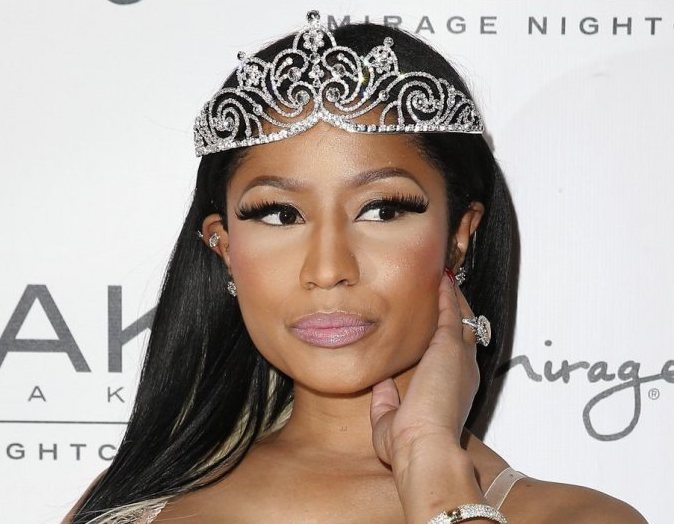
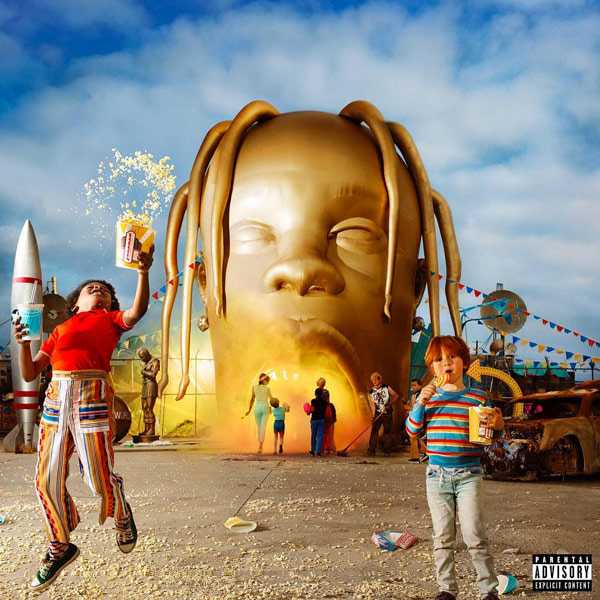
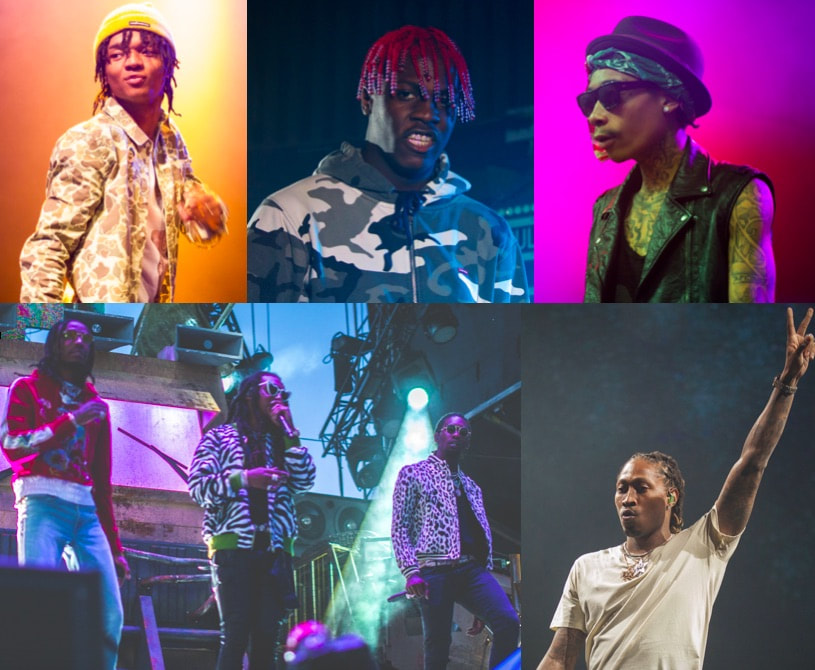
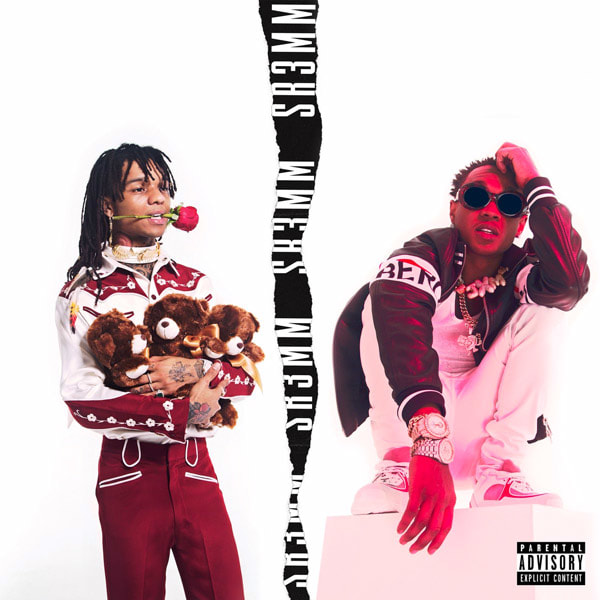
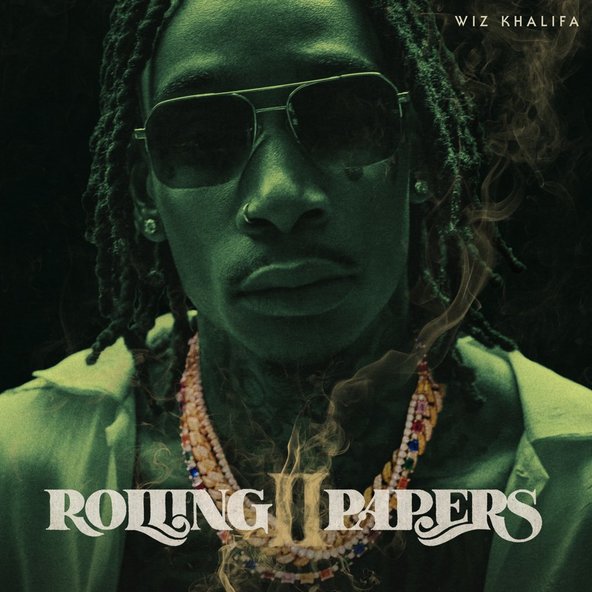
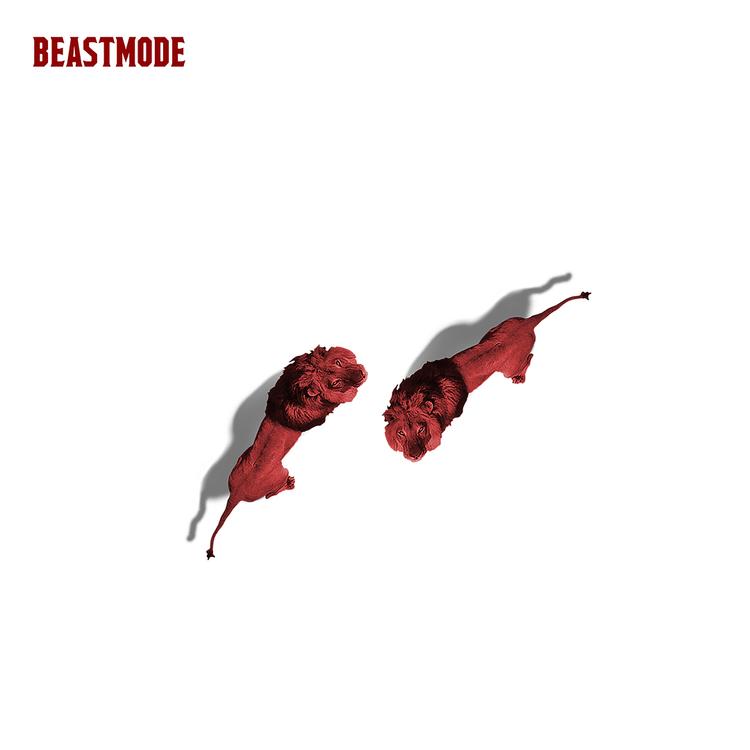

 RSS Feed
RSS Feed